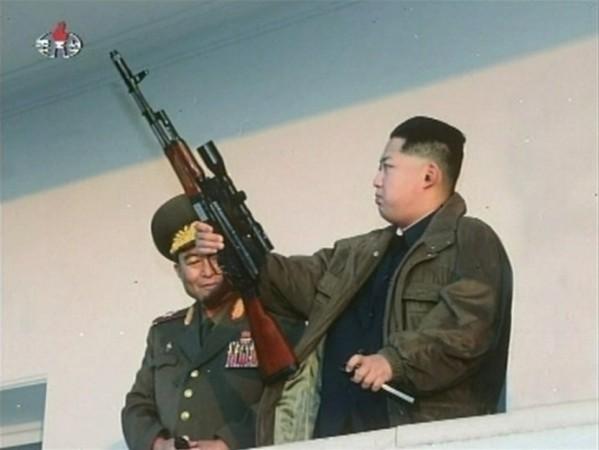
North Korea has sparked off a possible cold-war-like situation with its third nuclear test on Tuesday, sending ripples of apprehension across the world especially neighbouring country South Korea.
This is the third nuclear test North Korea conducted after similar test missions in 2006 and 2009, and is believed to be more powerful. The first test was carried out during the reign of Kim Jong-un, who took over the leadership after the death of his father Kim Jong-il in 2011.
North Korea officials said that the test was an act of self defence against continued hostility from the US. But the test has set off warning bells to South Korea in a challenge to show off its new cruise missile on Thursday, sending out a clear message North Korea is ready for any eventuality.
"The cruise missile we will show the public today is an extremely accurate weapon that can target precise targets - such as windows of a North Korean command office - anywhere in the Korean peninsula. It is extremely destructive and powerful and will restrict the enemy in case South Korea is threatened," South Korean Defense Ministry spokesperson Kim Min-seok told Voice of America.
South Korea had struck a deal with the US last year to expand the range of its missiles to counter the growing threat from its neighbour North Korea.
The recent nuclear test has also evoked fear in Japan but the US has assured help in times of emergency.
President Barack Obama on Wednesday spoke to Japanese Prime Minister Shinzo Abe following Tuesday's nuclear test, assuring him of a defence commitment to the country.
"They pledged to work closely together to seek significant action at the United Nations Security Council and to cooperate on measures aimed at impeding North Korea's nuclear and ballistic missile programs," a statement by the White House said.
US defence secretary Leon Panetta also told reporters on Thursday that North Korea is a "threat to the United States, to regional stability and to global security."
Meanwhile, North Korea, which brushed off warnings by the United Nations (UN) on carrying out the test, said that it would be forced to carry out more tests in the future if the US and other countries continue to put pressure on the country.
China, which otherwise has been siding North Korea and opposing UN's severe sanction plans, has expressed concern over the recent nuclear test and urged Kim Jong-un's regime to stick to its denuclearisation commitment.

















